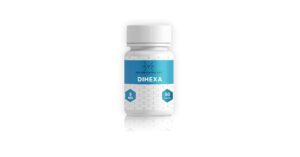Imagine a hidden substance mentioned by both neuroscience nerds and biohackers. This Dihexa peptide is a string of a few amino acids. Origins follow back to university researchers tinkering with angiotensin IV analogues. The reason is _ The way a splash of cold water strikes a sleep-deprived soul at dawn stimulates thinking.

Let us break through the stillness. There is buzz for good reason: animal studies point to shockingly extreme memory enhancement that almost qualifies as science fiction. See a mouse in a maze. One dose, and suddenly every turn is known, every road clear-cut. After a lot of rain, memory, knowledge, even maybe synaptic connections flourish like wildflowers. That is the promise looming above present conversations.
Online like confetti, anecdotes drift about. My attention sharpened. It was simple to recall names. Fans and critics argue, publish, swap rules like recipes. Doses vary not in standard form. Some follow microtweaks while others leap right forward. There is a lot of the crowd-sourced effect: one post proposes nasal sprays, another suggests subcutaneous pathways. No one agrees.
But, The catch is Human records are not yet available. Sure, lab rats and anecdotal consumers could applaud, but large, authoritative research on safety silently occupy the to-do list. Regarding long-term consequences? Mostly, really, wishful thinking and guesswork. For every passionate review, another concerns about changing the delicate pathways in the brain. Neuroplasticity; sure; memory enhancement. But what about later on inadvertent negative effects?
One factor is that the buzz draws biohackers with DIY attitude. Forums ablaze with stories of brain fog clearing or fresh ideas arriving in a flash will show you But lurking also is the spectre of self-experimentation and snake-oil. Unregulated vendors, dubious purity, inconsistent outcomes—these shadows follow every newly discovered cognitive chemical leaving the lab.
Curiosity drives interest even with the conflicting views. Everybody wants that edge—that spark of cerebral genius, that better sense of memory. Some speculate that one day this chemical may help those with degenerative brain diseases or memory loss. Perhaps it will help pupils program faster or ace tests. Perhaps it will fade as just another internet oddity.
Peptides are proliferating in great numbers. Brains are complicated; changing them is like trying to tune an orchestra while the music is playing. Not this one either; no one substance is a miracle bullet. But amazing, a memory booster functioning like a key opening synaptic doors we were not aware of existing.